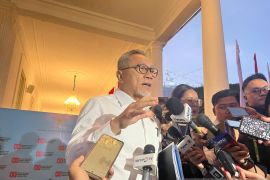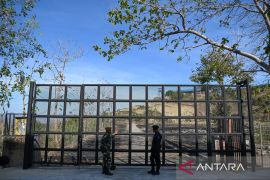"We will still observe this upheaval until September when the FOMC (the Federal Open Market Committee) holds its meeting. Therefore, our task is to maintain the economic stability during this upheaval," he affirmed here on Tuesday.
He noted that the current condition of the Indonesian economy is still under control, with all macro indicators showing no signs of crisis.
"Our economy recorded a positive growth of 4.7 percent in the first semester. The trade balance has shown a surplus, and the current account deficit has gone down. So, the macro conditions are still good. Furthermore, in the banking industry, NPL (non-performing loans) and CAR (capital adequacy ratio) are in a sound condition. The condition is totally different from that noticed in 1998," he pointed out.
The rupiah closed stronger at 14,024 per US dollar on Tuesday, gaining from an earlier level of 14,049 per US dollar after it came under pressure over the past few days.
PT Platon Niaga Berjangka analyst Lukman Leong has attributed the rupiahs rise partly to Bank Indonesia buying back state securities in the secondary market.
The share price index of the Indonesian stock exchange closed 64.77 points, or 1.56 percent higher at 4,228.5 points on Tuesday.
The index rebounded after a sharp fall earlier, with the 45 most liquid stocks jumping 2.32 percent to 708.26 points.
HD Capital analyst Yuganur Wijanarko stated that the market players had bought back shares that were earlier oversold.
Responding to the decision taken by the Peoples Bank of China (PBoC) to cut its interest rate by 25 basis points, the finance minister said it had no direct impact on the Indonesian economy.
The decision had an impact on the internal situation in China and was intended to boost the public consumption sector to push up its economic performance, he added.(*)
Editor: Heru Purwanto
Copyright © ANTARA 2015











